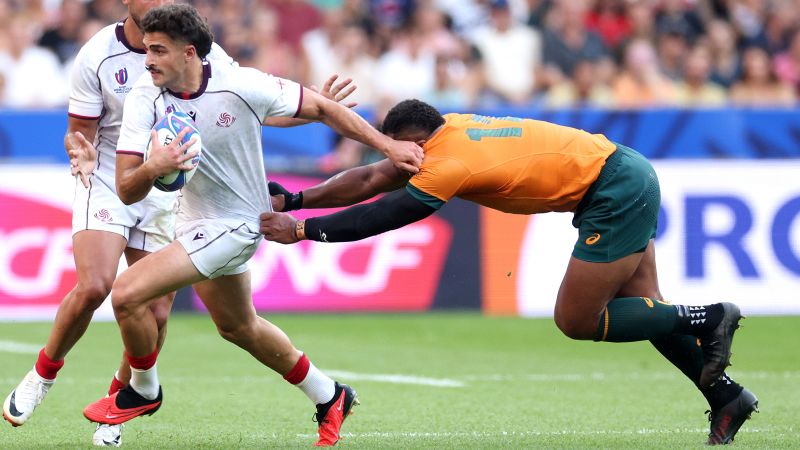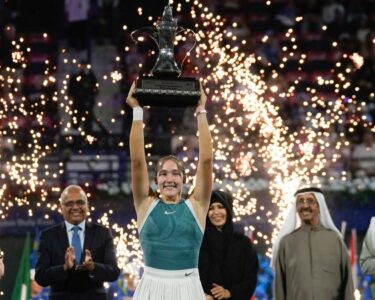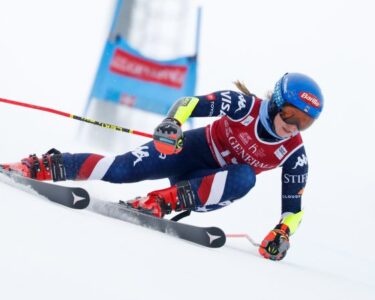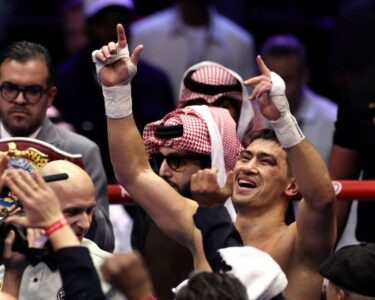CNN
—
“We always had it in our history, in our DNA, to fight,” Levan Maisashvili, head coach of Georgia’s rugby union team, says as he reflects on the proud, defiant nature of his small country.
Maisashvili knows all about battling against the odds. In 2021, he was given a 1% chance of survival after contracting Covid-19 in South Africa, subsequently spending a month in a coma and losing 25 kilograms.
He has since made a full recovery and, the year after his brush with death, masterminded Georgia’s victories against Italy – the country’s first win against a “tier one” nation, so-called for competing in one of the rugby’s top-level international competitions – and Wales.
Today, Maisashvili is in France leading Georgia at the 2023 Rugby World Cup. It wasn’t long ago that the country was struggling to find nations to play against and equipment to train with, but now it is defeating some of the best teams in the game and has its eyes set on future growth.
When asked what characterizes Georgian rugby, Maisashvili tells CNN Sport: “That’s obvious, it’s the sacrifice. Without the emotion, there is nothing. Every Georgia player fully understands they have to sacrifice themselves.”
Rugby has traditionally been dominated by a handful of countries, and indeed, only four different nations have won the World Cup since its inception in 1987.
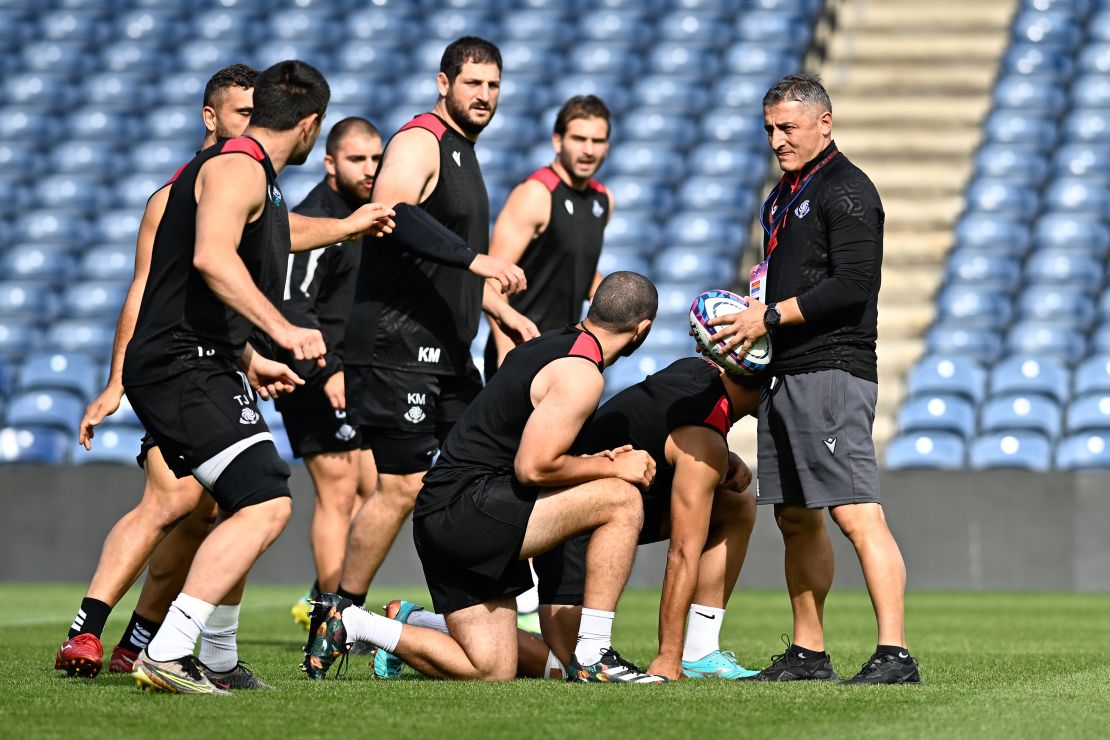
With a population of just 3.7 million, the nation of Georgia might be small, but its rugby players, like six-foot-one-inch, 269-pound prop Nika Abuladze – who can reportedly squat over 570 pounds and bench press almost 400 – are anything but.
This tiny nation of big men is looking to tear down rugby’s status quo, and the players are wholly committed to this cause.
The focus of this fight is now aimed squarely at proving to the world that, after decades of being dismissed as an easy pushover for the giants of the sport, Georgia is a force to be reckoned with.
Having lost 35-15 against Australia in its Rugby World Cup opener, Georgia hopes to bounce back against Portugal this Saturday, then against Fiji and Wales in its final pool C game.
Humble origins
Georgia is a relative newcomer to the international rugby scene, but the game has a lineage in the country that goes back centuries.
Lelo burti is a brutal folk sport which has been played in Georgia for hundreds of years and bears some similarities with rugby. In a dense scrimmage, two teams compete to get a 16 kilogram ball filled with things like sand, sawdust and wine from one end of a village to the other.
It is rather more chaotic than a standard game of rugby, and can involve hundreds of people competing at once.
But the sport arguably helped to lay the foundations for rugby’s popularity in the country, an influence exhibited in Georgia’s rugby vernacular. The national team is known as The Lelos and a rugby try is known locally as a Lelo.
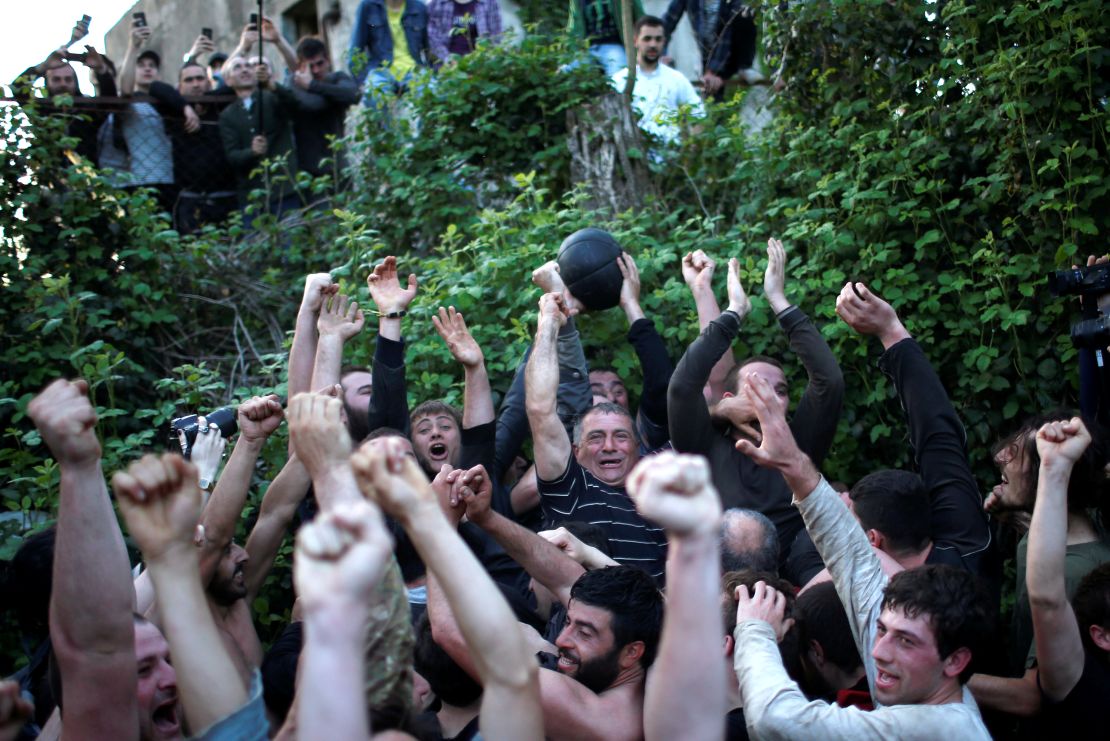
The Georgian national rugby team was formed in 1964, but was initially subsumed by the Soviet Union rugby federation. Despite making up a tiny portion of the Soviet Union, Georgian players were one of the dominant forces in the larger nation’s rugby team.
By the 1980s, Georgian clubs were the “most successful in the Soviet championship” and were providing “if not the majority, then a considerable number of players to the Soviet national team,” Tony Collins, a historian at the Institute of Sports Humanities and the author of a number of books on the history of rugby, tells CNN Sport.
The nation’s rugby team suffered after gaining independence, leading to serious lack of resources. According to Huw Richards’ “A Game for Hooligans,” the Georgian team had just two balls to practise with in 1997.
Despite these limited funds, rugby was a way for this newly independent state to establish itself on the international scene.
Georgia made its first appearance in a World Cup in 2003, losing all its matches. Despite the results, Collins says that the tournament “gave rugby a profile in Georgia that no other sport really had” and “came to symbolize how Georgians would like to see their country: it was an underdog, it was tough, it was hard, it was a fighting nation. Rugby came to embody these qualities.”
This elevated rugby to something that helped give Georgia a sense of national identity. The sport’s growing prominence led to an increase in grassroots funding from the government, and prompted Bidzina Ivanishvili, Georgia’s richest man, according to Forbes, and the former prime minister, to pump huge sums of money into the country’s rugby program.
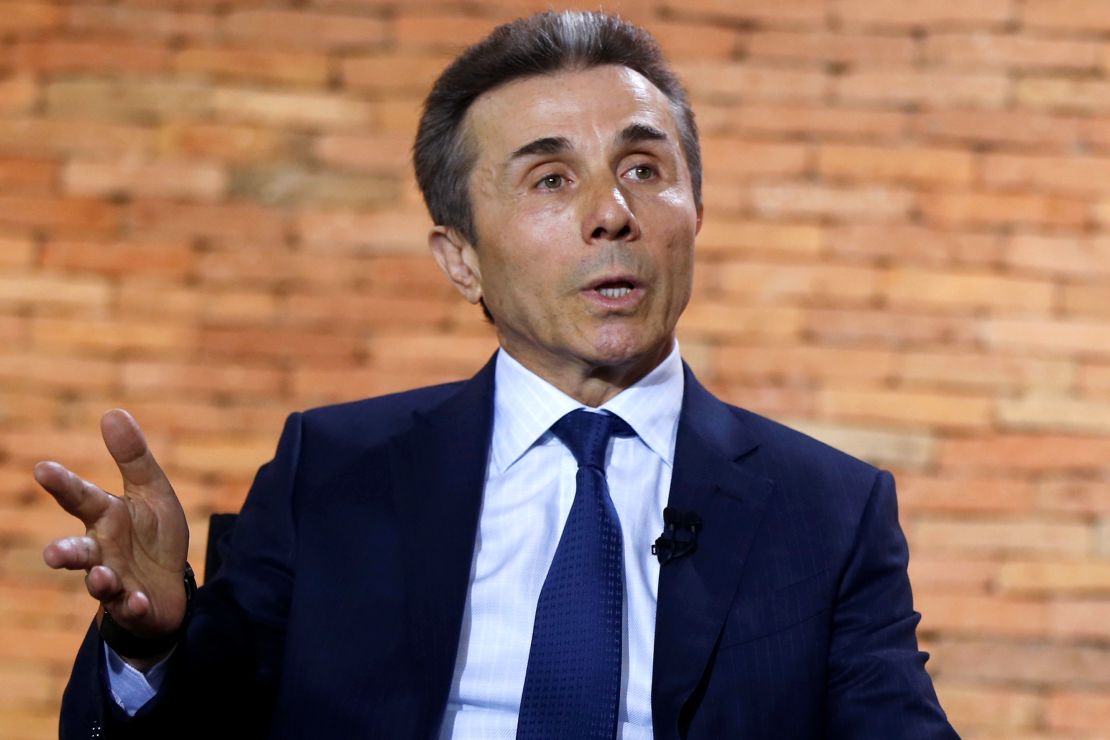
“It was like oxygen,” Maisashvili says of the extra resources.
This funding has helped the game to develop and contributed to the team rising from 17th in the world rankings at the start of the 2003 World Cup to 11th ahead of the 2023 tournament.
Going up against a ‘cartel’
Despite recent successes, Georgia’s growth might have hit a ceiling.
The elite competitions of international rugby, outside of the World Cup, are the Six Nations in the Northern Hemisphere and the Rugby Championship in the Southern Hemisphere. These competitions dictate the majority of international fixtures for top-tier nations.
Georgia has been keen to be included in an expanded Six Nations – or for some form of relegation and promotion to be introduced to the competition – for years. But its efforts have so far proved unsuccessful.
“Georgia struggles from the deep structural biases that rugby union has had basically since its inception,” says Collins, adding that The Lelos’ inclusion in the Six Nations is not likely to happen anytime soon, partly for commercial reasons and partly because relegation would pose a huge financial risk for the current members of the competition.
“Unfortunately, international rugby is something of a cartel and it’s a self-protecting cartel,” he says.
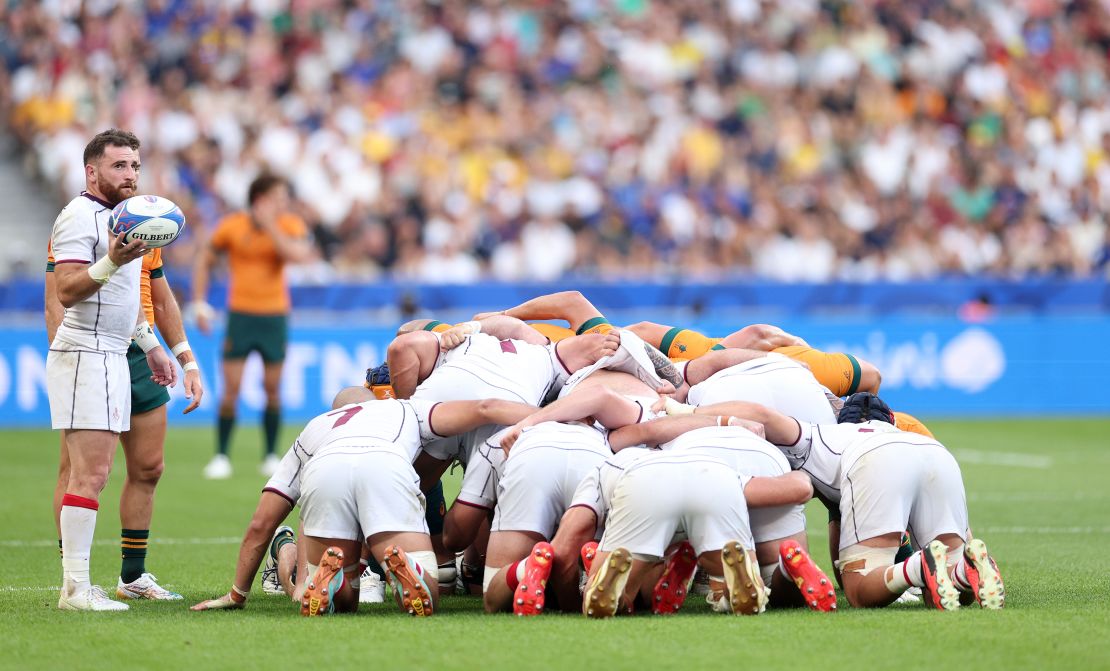
This system seriously limits the number of games Georgia can play against tier one nations, which clearly frustrates head coach Maisashvili.
“We haven’t the opportunities to play against tier one countries … Our ranking is high, but I don’t care about that,” he says. “I need more opportunity for us, more game time for the boys to play against tier one countries.”
World Cup ambitions
So where does this leave Georgia at the ongoing World Cup in France?
Despite the recent strides the team has made, few commentators are giving The Lelos much hope of making it out of the group stages, let alone winning the tournament.
Georgia is in one of the stronger pools, containing the likes of Fiji, Wales and two-time champion Australia, which suffered a shock defeat against Fiji last week, blowing the pool wide open.
A game against Portugal, three places below Georgia in the world rankings, in Toulouse on Saturday provides a good chance of a victory, while Wales and Fiji will present a tougher challenge later in the tournament.
“Once you get out of the group stages, then if luck goes your way, if your opponents have an off day, then you’re just a handful of games away from the final,” says Collins.
When asked about his goals for the tournament, Maisashvili says he wants to win “a minimum of two games to get straight qualification for the 2027 World Cup.”
But he also has a loftier ambition: to prove that the days of tier two nations like Georgia being dismissed as also-rans are over.
“Our goal is to play against everyone as a competitor – play against everyone to win and show everyone we can play against the tier one countries,” he says.
World Cups are known for their upsets and unpredictability, and if Georgia can do exactly that, then Maisashvili’s goal may come one step closer to being a reality.


